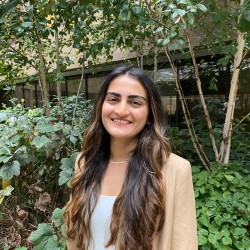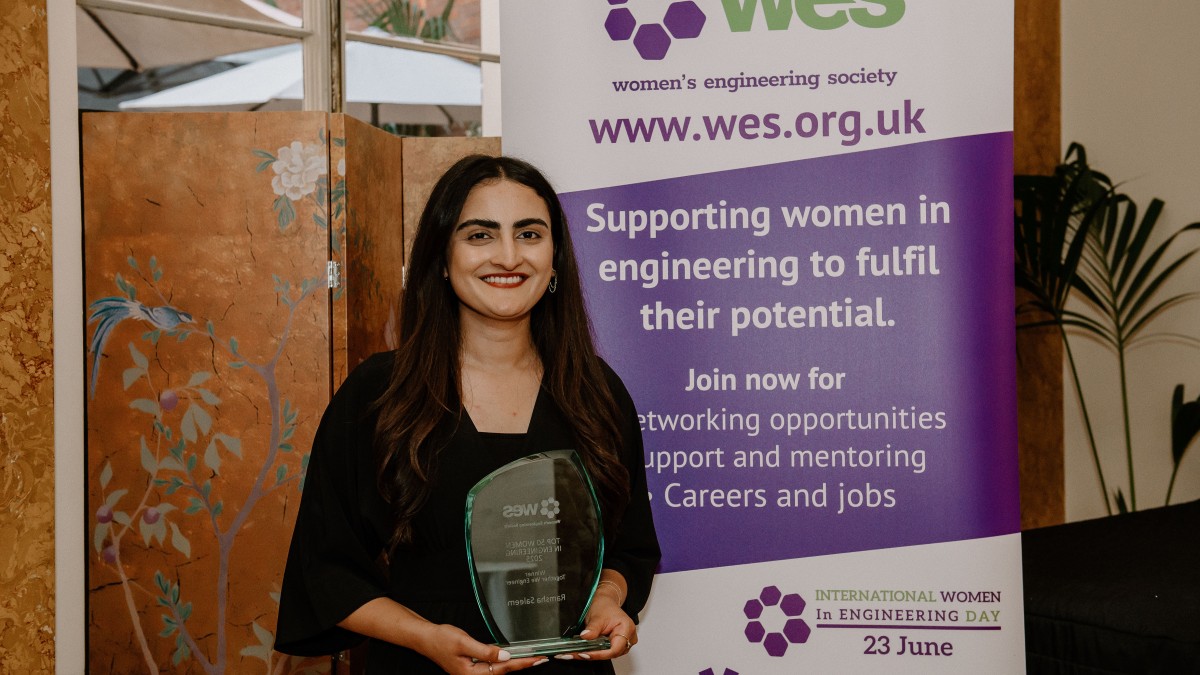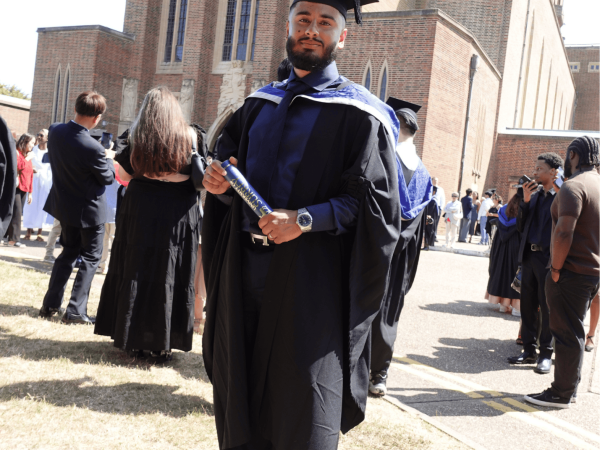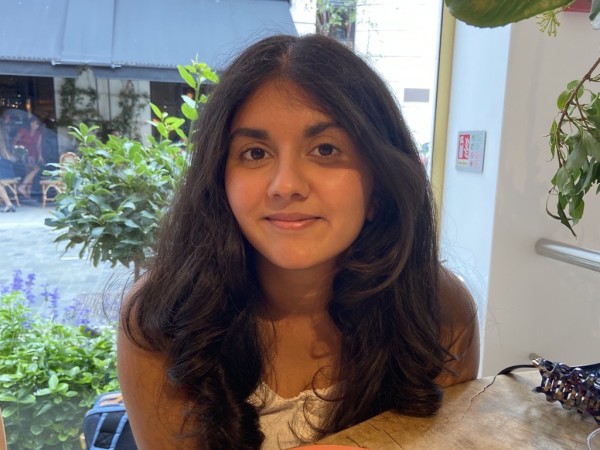
Ramsha S.
"I particularly valued the course’s emphasis on experiential learning. From the very first year, we were encouraged to engage with the practical side of engineering. The Design, Assemble and Dismantle project stands out as a highlight—it was a unique opportunity to apply theoretical knowledge in a tangible, collaborative setting."
Course
Civil Engineering MEngWhat were the best things about your course?
One of the most enriching aspects of my course was the opportunity to integrate academic learning with real-world experiences through the Surrey/ICE Scholarship Scheme. This scholarship was a gateway to the industry. The hands-on industrial experience I gained through it directly complemented the theoretical foundations that were developed in lectures, allowing me to see how theoretical concepts translated into practical engineering solutions. It helped me develop a broader understanding of the civil engineering landscape and appreciate how different elements of the profession come together to shape the built environment.
I particularly valued the course’s emphasis on experiential learning. From the very first year, we were encouraged to engage with the practical side of engineering. The Design, Assemble and Dismantle project stands out as a highlight—it was a unique opportunity to apply theoretical knowledge in a tangible, collaborative setting. Working on that project gave me a real appreciation for constructability and buildability challenges, and it helped me develop problem-solving and teamwork skills that I continue to use today.
Another standout experience was co-organising two international summer workshops—one in Mexico focused on sustainable construction materials, and another in Australia exploring innovative construction methods. These workshops, supported by the department, were transformative. They not only broadened my technical knowledge but also gave me a global perspective on sustainability in engineering. I’m grateful to the department for continuously creating such forward-thinking opportunities for students.
"Above all, what made my time at Surrey truly special were the people—the lecturers who inspired and challenged me, and the friends who supported me through every high and low. The sense of community I found here made the university feel like a second home, and I’ll always carry that with me."
What do you do now? How did your degree from Surrey help you achieve this?
I currently work as an Engineer in the Sustainable Water Management team at WSP, where I contribute to a wide range of blue-green infrastructure schemes. My role involves collaborating across disciplines to design climate-resilient solutions that prioritise both nature and people. I’ve worked on several multidisciplinary flood and coastal risk alleviation projects, including schemes across Westminster, Reclaim the Rain, Weymouth Flood and Coastal Alleviation, and the Shrewsbury Northwest Relief Road. These projects have deepened my understanding of how engineering can create more resilient, inclusive, and adaptive urban environments.
I was honoured to be selected as a 2024 ICE Future Leader. In this role, I’m leading the development of a global digital platform to foster cross-industry collaboration and drive nature-positive outcomes.
I’ve also maintained collaborations with the University of Surrey and the Surrey Institute of Education, which have resulted in several published papers, one of which I was proud to present at the 2023 International Association of Spatial Structures Conference in Australia.
"Most recently, I was honoured to be named one of the Top 50 Women in Engineering by the Women in Engineering Society. This recognition reminded me that engineering is a collective journey, and I’m proud to be part of a movement that’s not only shaping the built environment but also redefining what leadership in engineering looks like."

Ramsha was recently named one of the Top 50 Women in Engineering by the Women in Engineering Society
My degree from Surrey has been foundational to all of this. It gave me more than just technical knowledge—it nurtured my confidence, broadened my perspective, and encouraged me to pursue opportunities. The support, mentorship, and experiences I gained there continue to shape how I approach challenges and strive for impact.
What’s your advice to current students?
My advice to current students is to truly embrace every moment of your university journey—even the late nights and all-nighters spent finishing coursework. While they may feel exhausting at the time, those moments often become the ones you look back on with the most pride and even a bit of nostalgia. They’re a testament to your resilience, your dedication, and your ability to push through challenges.
"Make the most of every opportunity that comes your way, whether it’s an academic project, a placement, a guest lecture, or a student-led initiative. You never know which experience will spark a new interest, open a door, or lead to a lasting connection. Say yes to things that scare you a little—they’re often the ones that help you grow the most."
Also, take a moment to look around at your course mates. These are the people who will be by your side through the highs and lows of university life. They’ll be the ones you celebrate with after exams, lean on during tough times, and laugh with over shared memories. But more than that, they’ll likely be your future colleagues, collaborators, and friends long after graduation. The bonds you build now can become some of the most valuable relationships in your professional life.
Finally, don’t be afraid to ask for help, to try something new, or to take a break when you need it. University is as much about personal growth as it is about academic achievement. Be kind to yourself, stay curious, and remember that every challenge is an opportunity to learn something new about yourself and the world around you.

